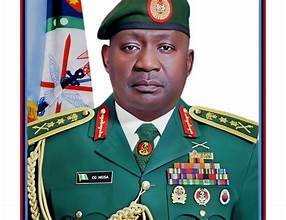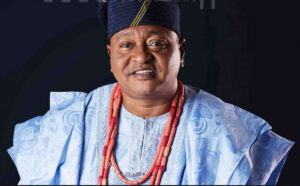How violence robs Nigerians of their votes
[ad_1]
By Femke Van Zeijl
As Tobi Olayinka set out to vote on Saturday morning (25 February, 2023) in Nigeria’s Lagos state, she took along a backpack filled with food and drinks and an umbrella against the sun.
The 31-year-old first-time voter believed she could make a difference with her vote. The Lagosian was determined to stick around her polling centre until the results came out.
Olayinka is one of the many young Nigerians who got enthused about voting with the emergence of the Labour Party’s presidential candidate Peter Obi, a third frontrunner in what used to be a two-horse race between big parties – the ruling All Progressives Congress (APC) and the opposition People’s Democratic Party (PDP).
“I had so much hope that this time around, our future could be better,” she told Al Jazeera.
She cast her ballot before 10am (09:00 GMT) on February 25 and then settled down in front of the closed shops across her polling unit (PU) in Ojuelegba, a popular quarter in Surulere Local Government on the Lagos mainland.
The counting was expected to begin after voting ended at around 2:30pm – a moment Olayinka was waiting for. People already waiting in the queue were allowed to vote and in some places the voting went on till midnight. But she never got to see the results of her polling unit, registered by the Independent National Electoral Commission (INEC) as number 24 of Akinhami/Cole Ward.
Around 1pm (12:00 GMT), a group of men rushed towards her from the junction with Akinhami street. Then she heard a gunshot. She ran for cover.
“I ran faster than I ever had, I flew over flower pots and gutters,” she recounted. Eventually, she hid in a compound where one of the residents opened the gate to allow people to escape the violence.
What happened next at PU 24 was recorded from a roof terrace across the street with a clear view of the polling booth, which came under attack from 10 men.
One grabs the table the electoral officers had sat on and flings it onto the street, scattering all documents that were on top, the video shows.
Another goes straight for the box with the red cover marked PRESIDENTIAL, lifts it up high above his head and slams it onto the asphalt, the cast ballot papers piling up onto the street. The other two ballot boxes get the same treatment from a third man.
All this does not take more than 20 seconds. According to eyewitnesses, the violent group then continued its journey down Akinwande Street, ransacking three more polling units in the area before taking off.
Violence is a proven strategy in Nigeria – Africa’s largest democracy – to disrupt the voting process, especially in neighbourhoods that traditionally vie for the opposition.
Violent groups known as “political thugs” have been used by the established political parties in Nigeria for decades to influence the electoral process by force.
If the voting does not seem to go their way, the candidates mobilise these thugs to raid the polling units. Not only does it scare people away from casting their ballots in the first place, but it also invalidates the ballots of the people who do come out to vote.
The electoral body cancelled the results of the four polling units attacked in Olayinka’s neighbourhood.
According to INEC’s data, a total of 1,950 voters were registered at these units. And it is not the only location in Surulere, one of Lagos’s 20 local government areas with an estimated population of 650,000, where the voting process was violently disrupted on election day.
On Akerele Street, two kilometres (1.2 miles) from Olayinka’s voting unit, about five men wearing black masks and holding black pump action rifles jumped out of a yellow minibus near the gate of Falolu Road around 2:30pm (13:30 GMT). They fired shots in the air to scatter the crowd as Nigerian and international journalists looked on.
The masked men took possession of the presidential ballot box and destroyed the other two before disappearing. Voting at this polling unit with 934 registered voters was subsequently cancelled.
A little over a kilometre away on Adedoyin Road, there was hardly any sign left of polling stations 35 and 36. Green shards of glass were scattered on the street and loads of completed ballot papers lay trampled in the gutter.
The electoral officials were nowhere to be found: they had fled as the violence started. The voting for Nigeria’s national elections went ahead, but the voices of the 1,554 registered voters at these two polling units would not count.
“An hour ago we suddenly heard a noise,” said a street resident who had just cast her vote and was waiting for a friend.
Five men coming out of a Toyota Sienna and a Corolla and holding bottles, machetes and sticks started targeting the waiting crowd at a polling booth.
“Bottles flew through the air. Everyone started running and I got hurt,” she said, pointing to her heel where shards left deep gashes.
The men destroyed the ballot boxes and threw out the papers. They took away the box with the red cover marked PRESIDENTIAL.
The witnesses of the violence on Adedoyin Road disagree about which party the robbers belong to.
They all agree on one thing: these were political thugs sent by candidates who were not happy about the expected outcome of the results.
Voters felt helpless as their ballots went up in smoke.
“See how they strip us of our democratic rights,” said a man with a greying beard, shaking his head at the ditch with the crumpled ballot papers.
The electoral commission cancelled the results of 20 polling units in Surulere because of violent incidents. The total number of voters registered at these units was 12,955.
Fred Adoki was on Adedoyin Road when the violence broke out. A couple of days later, he is still shaken from what happened on his street. He was waiting to cast his vote in an upbeat mood.
“The crowd was so much. It made me so happy,” he said. He still cannot believe they all came in vain.
“This time I believed I had the power to make a difference,” the 37-year-old said. “But now I am robbed of that. It is so frustrating.”
It left him feeling disenfranchised, but he said it will not discourage him from voting next time: “I believe we have the power to make a change.”
Tobi Olayinka, the first-time voter from Lagos, said she is more resolved than ever to make her vote count.
“It is too important. Nothing works in Nigeria. It should not be such a struggle living in this place. We need change for this generation and for our children,” she told Al Jazeera.
On March 11, Nigeria will hold another round of elections to elect legislatures and governors for its 36 states, including Lagos State, the economic capital of Nigeria. Voting will be also held at the polling units where ballots were canceled.
“I am a very stubborn person. I will be there again with my backpack,” Olayinka said with a grin.
Courtesy: aljazeera.com
READ ALSO FROM NIGERIAN TRIBUNE
[ad_2]














Post Comment